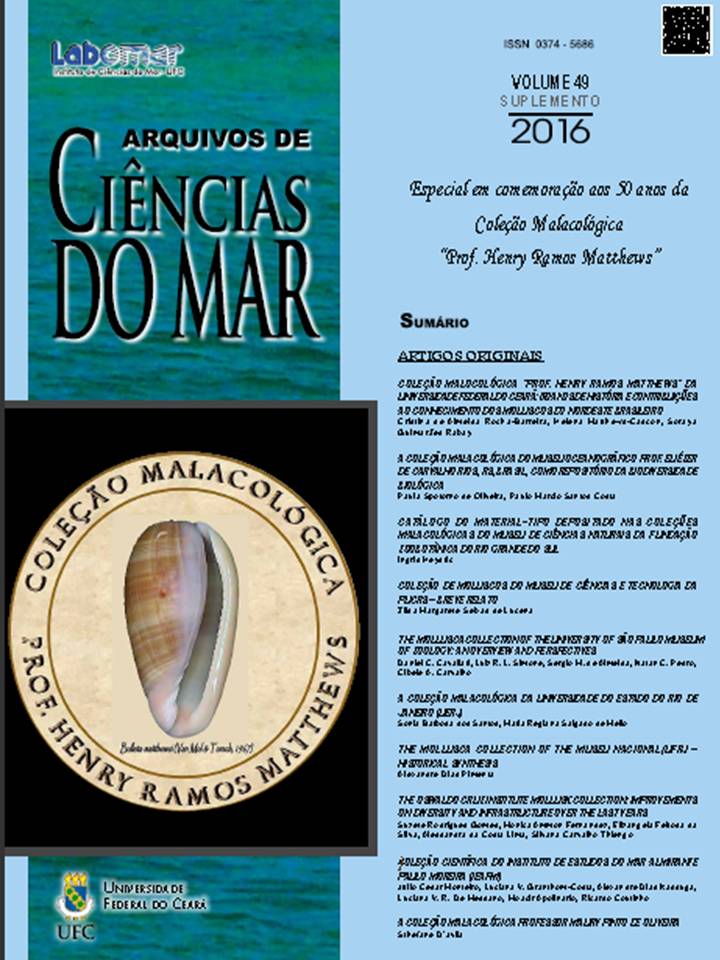Land gastropods from “Prof. Henry Ramos Matthews” Malacological Collection the Universidade Federal do Ceará
DOI:
https://doi.org/10.32360/acmar.v49i0.6132Keywords:
zoological collection, terrestrial mollusk, caatinga, semi-arid, Atlantic ForestAbstract
Knowledge of terrestrial malacofauna in Ceará state is scarce since there are few surveys of terrestrial mollusks, and most reports and descriptions are old, limited in scope or lack accurate data on occurrence. This paper aimed to expand the “Prof. Henry Ramos Matthews” Malacological Collection from Instituto de Ciências do Mar, Universidade Federal do Ceará with the inclusion of specimens of terrestrial molluscan fauna from Caatinga and Atlantic Forest environments and thus contribute with taxonomic and ecological studies on terrestrial mollusks found in this region. They were sorted, identified and cataloged into 96 lots consisting of specimens stored without processing at the Laboratory of Marine Invertebrates of the UFC, and specimens collected during this research. The material was identified at the genus level, and, where possible, at the species level. In total, 15 genera were identified, being Anostoma Waldheim, 1807 and Tomigerus Spix, 1827 the most representative. When available, ecological data were included in order to provide information on the environment, vegetation and climate of the collecting sitesDownloads
Published
2017-02-13
Issue
Section
Artigos originais
License
1. Proposta de Política para Periódicos de Acesso Livre
Autores que publicam nesta revista concordam com os seguintes termos:
- Autores mantém os direitos autorais e concedem à revista o direito de primeira publicação, com o trabalho simultaneamente licenciado sob a Licença Creative Commons Attribution que permite o compartilhamento do trabalho com reconhecimento da autoria e publicação inicial nesta revista.
- Autores têm autorização para assumir contratos adicionais separadamente, para distribuição não-exclusiva da versão do trabalho publicada nesta revista (ex.: publicar em repositório institucional ou como capítulo de livro), com reconhecimento de autoria e publicação inicial nesta revista.
- Autores têm permissão e são estimulados a publicar e distribuir seu trabalho online (ex.: em repositórios institucionais ou na sua página pessoal) a qualquer ponto antes ou durante o processo editorial, já que isso pode gerar alterações produtivas, bem como aumentar o impacto e a citação do trabalho publicado (Veja O Efeito do Acesso Livre).

